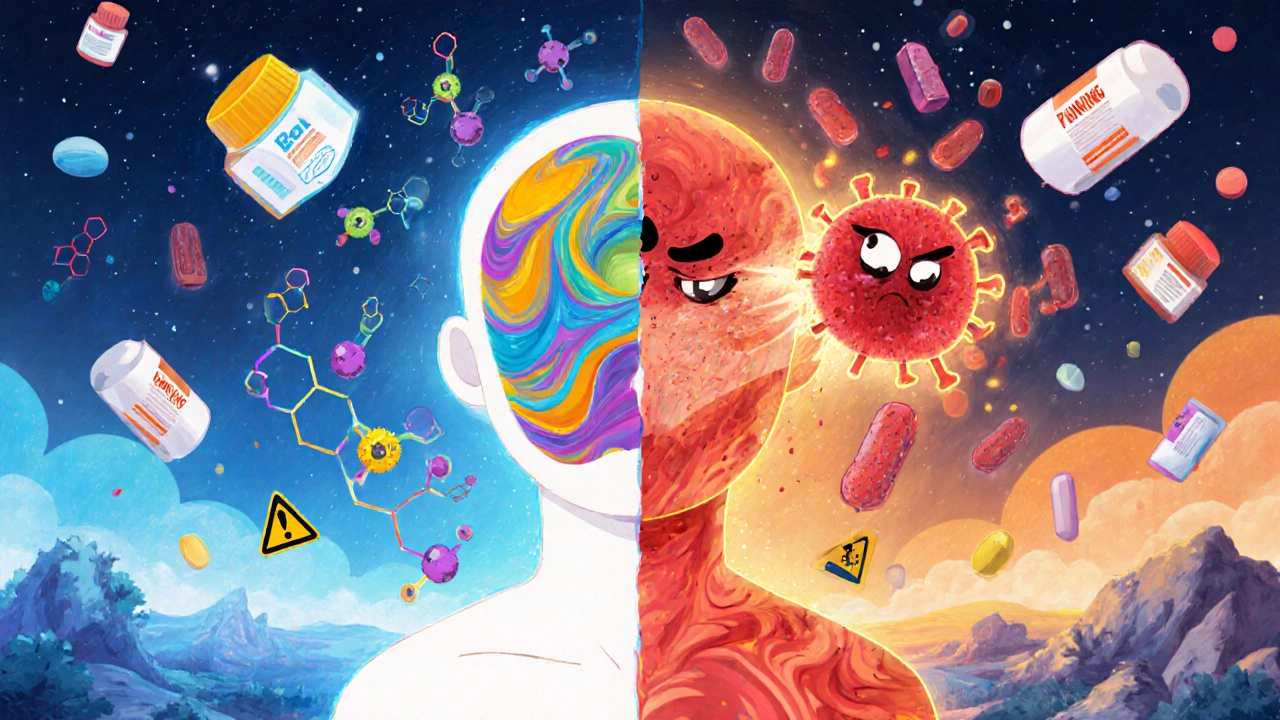Drug Allergy Testing: What It Is, Who Needs It, and What to Expect
When your body reacts badly to a medicine—not just with a stomachache, but with hives, swelling, or trouble breathing—that’s not a side effect. That’s a drug allergy, an immune system overreaction to a medication that can range from mild to life-threatening. Also known as medication hypersensitivity, it’s not something you can just tough out. If you’ve ever broken out in a rash after taking penicillin or felt your throat close up after an antibiotic, you’ve seen it firsthand. Unlike side effects, which are predictable and common, a true drug allergy means your immune system sees the drug as an invader. And once it does, it remembers. Next time you take that same medicine—or something similar—it could react even faster.
Not every bad reaction is an allergy. Nausea from antibiotics? That’s common. A fever after a vaccine? Often just your body responding. But if you get swelling around your lips, a widespread pustular rash like AGEP, a sudden, painful skin reaction triggered by certain drugs, or trouble breathing after taking a pill, you’re looking at a real allergy. These reactions don’t always show up right away. Sometimes it takes days. That’s why so many people think they’re allergic to penicillin when they’re not—they had a rash after taking it as a kid, never got tested, and now avoid all antibiotics out of fear.
Drug allergy testing isn’t always simple. There’s no single blood test that catches everything. For some drugs, like penicillin, we can do skin tests that give clear answers. For others, like NSAIDs or sulfa drugs, we rely on detailed history and sometimes controlled challenges under medical supervision. And for rare but severe reactions like drug rash, a broad term covering any skin reaction caused by medication, including Stevens-Johnson syndrome and toxic epidermal necrolysis, the diagnosis is often made by ruling everything else out. The goal isn’t just to label you allergic—it’s to find out what you can safely take next time.
People who’ve had a serious reaction, those with multiple drug allergies, or anyone who’s been told they’re allergic without testing should consider getting evaluated. It’s not about avoiding medicine—it’s about avoiding the wrong ones. If you’re allergic to one beta blocker, you might still tolerate another. If you think you’re allergic to all NSAIDs, you might actually handle one just fine. Getting tested clears the air, reduces unnecessary restrictions, and keeps you safer in the long run.
Below, you’ll find real stories and practical guides on how drug reactions happen, what to watch for, how to avoid dangerous mix-ups, and what to do if you’ve been mislabeled. Whether you’re a patient, a parent, or just someone who’s had a weird reaction to a pill, these posts give you the facts—no fluff, no fearmongering, just what you need to stay safe.
Difference Between Medication Side Effects and Allergic Drug Reactions
Learn the key differences between medication side effects and true allergic reactions. Discover why mislabeling side effects as allergies leads to higher costs, worse treatments, and unnecessary risks - and what you can do about it.
More
